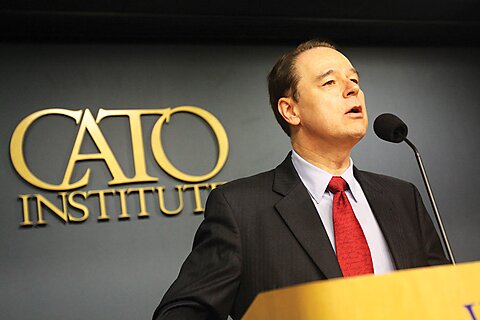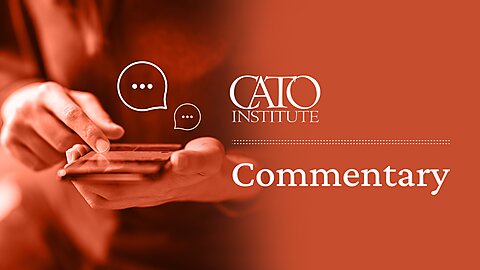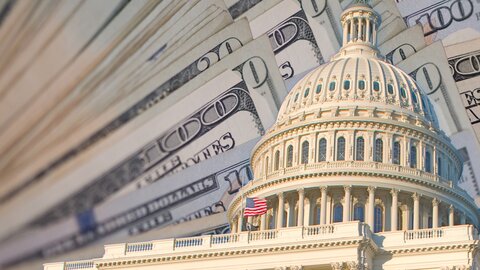
David Boaz: Mentor, Scholar, and Friend
My fear of moving into an office next to David Boaz seemed justified. It was 2013, and I had just accepted a new role at Cato. After all, David was the longtime executive vice president, and Cato stood on the principle that “Boaz Knows”—he’s always watching and reading. David had skewered too much of my work for me to think I was in for smooth sailing.
Soon enough, something about David made me embrace the challenge and preparation needed to walk into his office and enter intellectual combat—whether it was for feedback or when he’d ask for help searching for an email (neither of us figured out the Outlook search function). I embraced the challenge because I wanted to learn, and David wanted to teach. His mentorship abilities were only eclipsed by his vast knowledge.
David was accessible, open, and honest. He loved discussing any issue, and our conversations would veer from classic movies (his specialty) to modern technology (a pretend specialty of mine; I had an edge on him). David did not intend to demotivate or belittle with occasional sharp responses or follow‐up questions. He was honing my skills and knowledge as a communicator, problem solver, libertarian, and leader. Occasionally (and more often as the years passed), he’d say, “I think that’s right,” in his Kentucky accent, and I’d walk out beaming.
David was principled, sharp, and humble. He lived by the values that he insisted on and dedicated his life to ensuring that the Cato Institute exemplified. His humility often led him to downplay his importance not only to mainstreaming libertarianism but also to fostering the next generation of libertarians. Yet, on these two items, few have done more than David.
David has influenced the careers, professional development, and lives of too many individuals to count. Whether it was his fantastic staff writers or a visiting freedom fighter from Africa, David always sat down with anyone who wanted to talk—or those who were made to speak to him. Staff would pile up outside my office waiting for David—some to answer a “Boaz Knows” message, no doubt, and I could see the fear in their eyes. Yet he always seemed ready to engage the next person charitably. David was generous with his time, which he spent pursuing truth, knowledge, and liberty.
When I asked David what he was most proud of in his career, he said the fact that libertarianism is now recognized as a legitimate intellectual position worthy of attention. But this will always be a struggle, and we should not, for example, take for granted that Cato scholars are regularly quoted on the front page of the Wall Street Journal and cited as libertarians. We cannot take for granted that libertarianism will remain in the mainstream—Cato must never surrender its mission to move the climate of ideas and debate toward liberty. As David wrote, “to live up to these expectations, it’s everyone’s job to … keep Cato Cato, and keep Cato sharp.”
We will always have this in mind, David. We must, for as you said often in speeches, “there’s never been a golden age of liberty, and there never will be. There will always be people who want to live their lives in peace, and there will always be people who want to exploit them or impose their own ideas on others. There will always be a conflict between liberty and power. And that’s why we’ll always need a movement for freedom. We can’t count on politicians to protect freedom. It’s up to us. That’s why we are here.”
I am beyond lucky to have had my office next to David’s and to have been one of the many who count him as a major mentor. David’s legacy as a vanguard of libertarianism and the Cato Institute is monumental, and his impact on so many people professionally and personally will ensure these institutions thrive and grow. Thank you, David.



